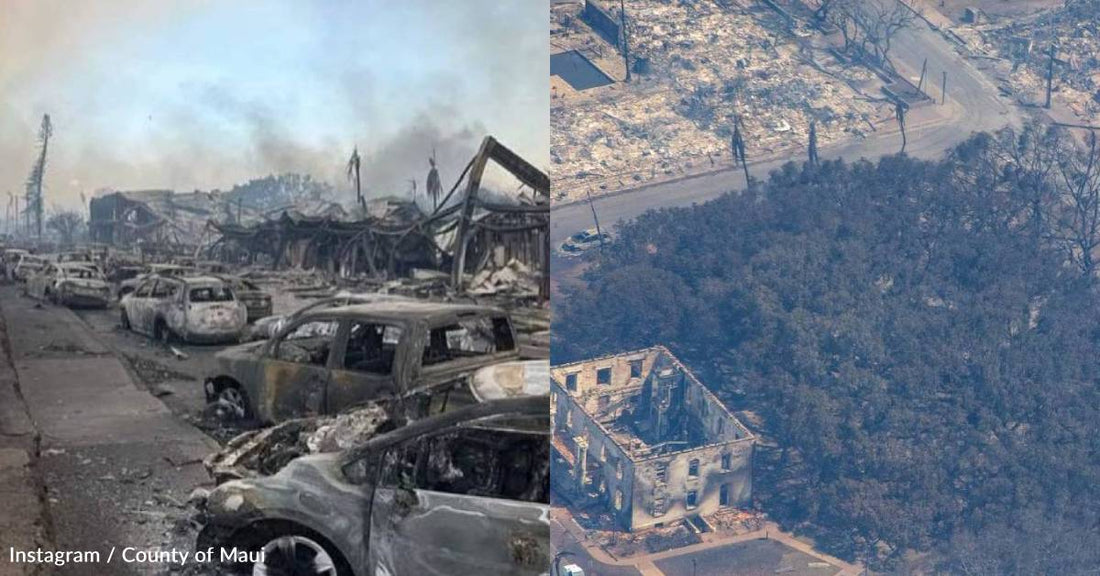How Conditions Combined to Drive the Devastating Wildfires in Maui
Michelle Milliken
As the Hawaiian island of Maui continues to assess the damage done by devastating wildfires this week, the totality of the destruction is not yet known. At least 53 people were dead as of Thursday afternoon, while many more were missing. Whole neighborhoods have been wiped out, with substantial damage to Lahaina, an historically significant city that draws scores of visitors each year. What were the driving forces behind this disaster? There were several.
Dora, a category 4 hurricane with maximum sustained wind speeds of 145 miles per hour as of Thursday morning, passed about 500 miles to the south of the islands this week. The storm's passage was forecast to bring strong trade winds and rough surf. Coupled with a strong area of high pressure to the north, it helped produce wind gusts of up to 67 miles per hour on Maui.
These winds arrived during Hawaii’s dry season and at a time when much of Maui is under drought. According to the U.S. Drought Monitor, the entire island is currently either abnormally dry or under moderate or severe drought. When dry conditions like this meet strong winds and low humidity, it creates red flag conditions, which are ripe for wildfires.
Experts say climate change is contributing, as well.
Crystal Kolden, pyrogeographer and associate professor at the University of California, Merced, told NBC News, “When we talk about climate change, we always say that it exacerbates the likelihood of an event because it loads the dice. There has always been the potential for hurricanes to pass near Hawaii. There has always been the potential for drought in Hawaii. But it’s all happening more frequently. And when it happens, it’s more extreme.”
Climate change-driven factors contributing to such weather events include warmer ocean water, which can spur stronger hurricanes, as well as higher air temperatures, which can lead to more severe drought and dry vegetation ripe for the burning.
As all these factors combined to wallop Maui this week, people reportedly fled into the ocean to escape the flames, residents reported seeing charred bodies in cars that looked to have been stuck in traffic, homes were destroyed, and popular businesses have been reduced to ash. A beloved banyan tree, the historical Baldwin Home Museum, and the 1820s-era Waiola Church are among the damaged or destroyed landmarks of Lahaina, which was once the capital of the Hawaiian Kingdom. A portion of the city is also a National Historic Landmark.
If you’d like to do your part to help the city and its inhabitants, including pets, click below.

